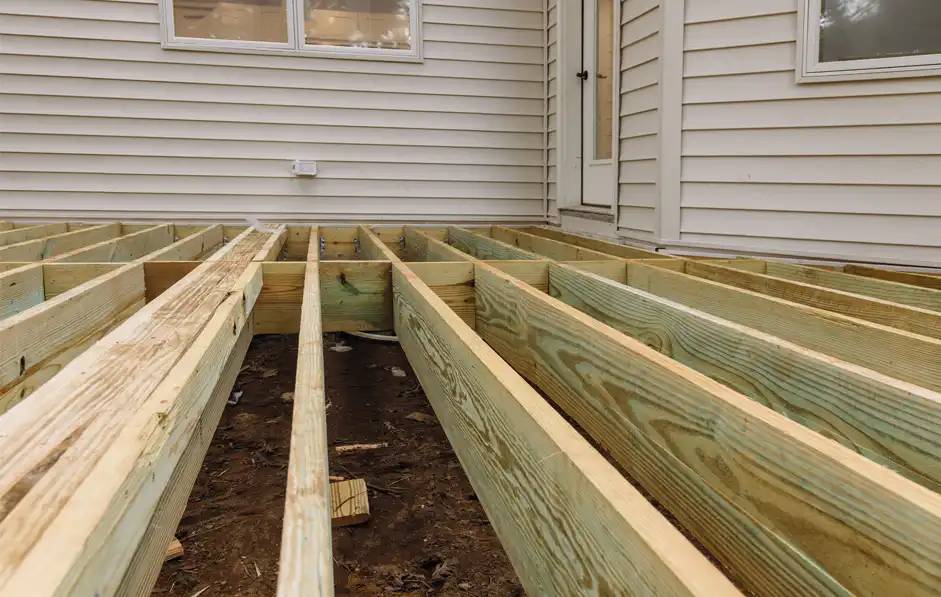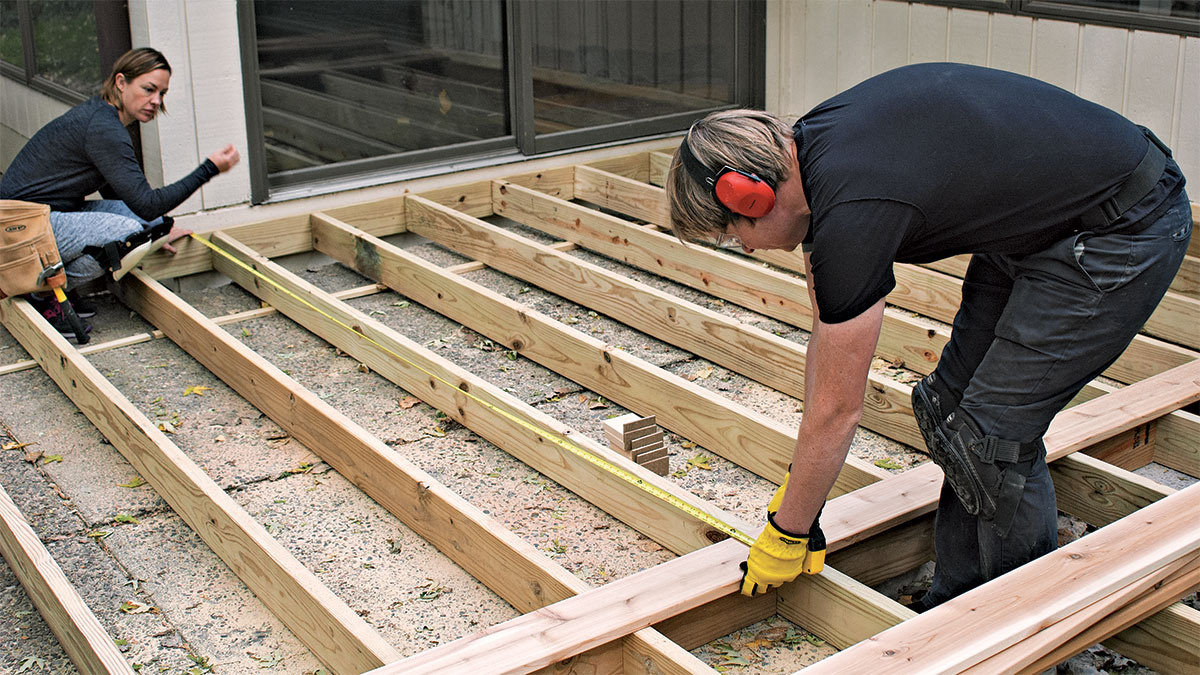How to Choose the Right Materials for Your Deck Installation Task
Picking the appropriate materials for your deck installation project can seem daunting. There are numerous elements to consider, from sturdiness and maintenance to aesthetic appeals and ecological impact. The selection between typical wood and composite products, each with its very own set of advantages and downsides, can be specifically tough. The trick is to stabilize your spending plan, layout choices, and way of life needs to produce a deck that will enhance your outdoor room for several years ahead.
Understanding the Different Kinds Of Deck Materials
When starting a deck setup project, the selection of products ends up being a critical choice. Different options are available, each with unique features and aesthetic appeal. Typical wood, for example, supplies an ageless, natural appearance and is usually more cost-effective. It can warp over time and needs regular upkeep. Composite products, on the other hand, are a mix of wood and plastic, providing sturdiness and resistance to weather components. They demand much less upkeep compared to timber yet are normally more costly. An additional choice is plastic, which is essentially maintenance-free and resistant to bugs and rot, albeit much less natural-looking. By comprehending these distinctions, homeowners can make a much more informed decision on one of the most suitable deck material for their certain needs.
Reviewing the Sturdiness and Maintenance Demands of Deck Products
Analyzing the durability and maintenance requirements of deck products is a crucial step in deck installation. Resilience involves the product's ability to hold up against rough weather problems, deterioration, and its long life. For circumstances, cedar and redwood are normally resistant to rot and bugs, making them resilient options. On the various other hand, pressure-treated timber, while long lasting, might need more maintenance due to its susceptibility to breaking and contorting.
Understanding upkeep demands is similarly important. Some products need regular sealing or tarnishing to preserve their look and withstand moisture damages, while others, like composite outdoor decking, demand much less upkeep. By evaluating these variables, one can select the most suitable decking product, making certain a balance in between toughness, maintenance needs, and aesthetic allure.
Expense Evaluation: Contrasting Wood and Compound Decking
Although cost might initially appear like a secondary concern, it is a substantial element when contrasting wood and composite outdoor decking. Timber, normally a cheaper option, has a reduced upfront expense. Over time, upkeep expenditures can gather, potentially making timber much more pricey in the lengthy run. These upkeep expenses might consist of staining, sealing, or changing harmed boards. On the other hand, composite outdoor decking, while costlier initially, needs much less upkeep, potentially lowering long-lasting expenses. Yet, it's vital to bear in mind that composite decking isn't unsusceptible deterioration, and substitute expenses can be high. Potential deck owners need to consider their spending plan and readiness to keep their decks when determining between wood and composite outdoor decking.
Appearances and Style Adaptability of Decking Products
Natural wood decking supplies a timeless, ageless look, while composite materials supply a vast range of colors and structures to suit diverse preferences and styles. Compound materials, while less versatile in style, are still versatile enough for most deck styles. These aspects, therefore, are essential components in the choice of decking material.
Environmental Influence of Decking Materials
When choosing outdoor decking products, one should consider not just appearances and toughness, yet additionally the environmental influence. It's essential to evaluate the sustainability of materials and check out recycled decking options. In addition, recognizing the potential influence on regional communities will certainly make sure a much more ecologically responsible selection.
Examining Product Sustainability
In the realm of deck building and construction, assessing product sustainability is a crucial step. Composite outdoor decking products often combine wood and plastic, minimizing the demand for new wood however raising dependence on fossil fuels - deck installation near me. Therefore, the choice of decking materials ought to balance performance, appearances, expense, and sustainability to guarantee a responsible and durable installment.
Recycled Outdoor Decking Choices

Composite decking is specifically preferred due to its sturdiness and convenience of upkeep. Recycled plastic decking, on the other hand, is highly resilient and requires marginal upkeep.

Influence On Local Ecological Communities
While the advantages of making use of recycled products for outdoor decking can not be overemphasized, it's similarly vital to think about the broader ecological implications of these selections. The extraction, handling, and transport of materials can exceptionally influence local ecosystems. Logging for timber decking adds to habitat loss and climate modification. Also the production of composite products can launch damaging exhausts. Conversely, utilizing recycled or sustainably sourced products can aid reduce these impacts. Considering the lifespan of materials can decrease environmental influence; longer-lasting options require less frequent replacement, thus conserving resources. Finally, appropriate disposal of old decking is vital to reducing garbage dump waste (deck installation). Basically, an eco-conscious deck task needs cautious product selection, try here lasting sourcing, and liable disposal.
Making Your Last Decision: Tips for Selecting the very best Deck Materials
As the short article changes right into the subtopic of "Making Your Final Choice: Tips for Choosing the Ideal Deck Products", it check out here is essential to understand the selection of deck materials readily available. Striking an equilibrium between durability and aesthetic appeal is important in this option process. The adhering to discussion will certainly assist viewers in making an educated selection based on these key factors to consider.
Understanding Various Deck Materials
The job of choosing the best products for your deck installation can appear daunting due to the large variety of options offered. Nonetheless, understanding the different materials can simplify this process. Timber is a prominent option, supplying a classic visual and price. Types of wood made use of consist of pressure-treated lumber, cedar, and redwood. Composite materials, made from a mix of wood and plastic, are low-maintenance and resistant to rot and bugs. Plastic or PVC decks are a lot more long lasting and call for less maintenance than composite products, yet they can look much less all-natural. Lastly, aluminum decks are strong, light-weight, and resistant to rot, but they are also the most costly choice. Each material has its own advantages and disadvantages, making it essential to consider your particular requirements before making a decision.
Longevity vs. Aesthetic Appeals Equilibrium
Balancing durability with looks can be a challenge when picking deck materials - deck installation. High-traffic locations may require durable materials like composite decking, which holds up against wear and tear but may do not have the all-natural charm of wood. House owners require to strike a balance, thinking about both the deck's functional needs and their aesthetic preferences.
Conclusion
Finally, choosing the right materials for your deck installment task needs careful consideration of elements such as resilience, maintenance, price, appearances, and ecological effect. Whether you select typical timber or composite materials, your choice should straighten with your budget plan, site link design choices, and lifestyle. Inevitably, the ideal outdoor decking material is one that boosts your outside space and provides pleasure for many years to come.